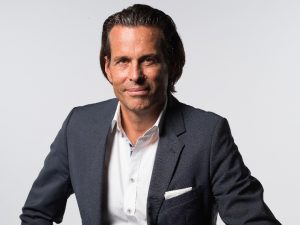
After more than 40 years of operation, DTVE is closing its doors and our website will no longer be updated daily. Thank you for all of your support.
Virgin Media O2 looks to lower churn after removing right to terminate after price hikes
 Virgin Media O2 contracts will include the right to raise prices in line with the UK retail price index going into 2024, obviating the effect of this year’s price hikes which led to a significant upping in churn because the company’s customers, unlike those of rivals, had the right to terminate.
Virgin Media O2 contracts will include the right to raise prices in line with the UK retail price index going into 2024, obviating the effect of this year’s price hikes which led to a significant upping in churn because the company’s customers, unlike those of rivals, had the right to terminate.
“We [now] have a contractual right to raise prices by CPI-plus in the same way that BT and other operators have”, said CEO Mike Fries, speaking on an analyst call after the company posted its Q2 numbers.
“That will be operative in 2024 because the contracts have changed,” he said.
Speaking on the same call, VMO2 CEO Lutz Schüler said that churn from the price rises had already materialised in Q2 but revenues would flow through in Q3 and subsequent quarters, which would benefit the company this year.
Customers of the UK operator, which is to reduce its workforce by about 10% as part of a cost-cutting drive, had the contractual right to terminate for 30 days after receiving their letters informing of the price rise, Schüler said.
He said that the impact of this, coming in the wake of a cost-of-living crisis in the UK, had been fully absorbed, and added that the churn impact had actually been less severe than might have been expected.
Schüler said that churn was being managed in a “more sophisticated” way, because the company has better data visibility across customers in all product sets.
“We were in a position to come up with very targeted offers for every sub-segment,” he said, with the company balancing churn management with retention benefits in a much more granular way than before, without quantifying the impact of this.
Price rises for all
Fries said that Liberty Global had implemented price rises in all its four core markets, with the highest in the UK. “This quarter was impacted by prices rises…which were considerable,” he said. Nevertheless, he said, the negative impact was pretty much as the company had foreseen.
He said Liberty-backed operating companies had absorbed the subscriber impact of the rises but would not feel the benefits until the current and next quarter.
“The market in the UK remains challenged,” said Fries, noting that inflation and lack of economic growth were significant headwinds in the struggling UK market.
However, VMO2 had managed to implement a price rise and would see benefits on its top line. Mobile revenue and B2B sales had helped drive the company’s top line.
He said the Swiss macro-economic environment was “more benign” and said that Liberty Global-backed operating company Sunrise had been able to up prices with some impact on numbers, partly because Swisscom did not increase its own prices, but that the company’s performance was strong.
About 40% customers in Switzerland also had an extraordinary termination right in the wake of price hikes, with some others also able to terminate, and some churn impact may be felt in Q3. However, the company does not believe this will be higher than in Q2.
Belgian inflation had declined and all operators had implemented price rises in that market, he said. Telenet revenue and EBITDA were up, he said, adding that Liberty was pleased with the rollout of the Fluvius fibre JV Wyre.
In the Netherlands, VodafoneZiggo had also upped prices and there was some negative impact as a result of KPN’s aggressive pricing strategy, delivering a “double whammy” against the company, he said. KPN had raised prices in mid-year against Liberty Global’s decision to raise earlier, and by a higher amount, he said.
Separately, Fries said that Liberty had launched a broader process to divest All3Media following the ending of talks with ITV.




